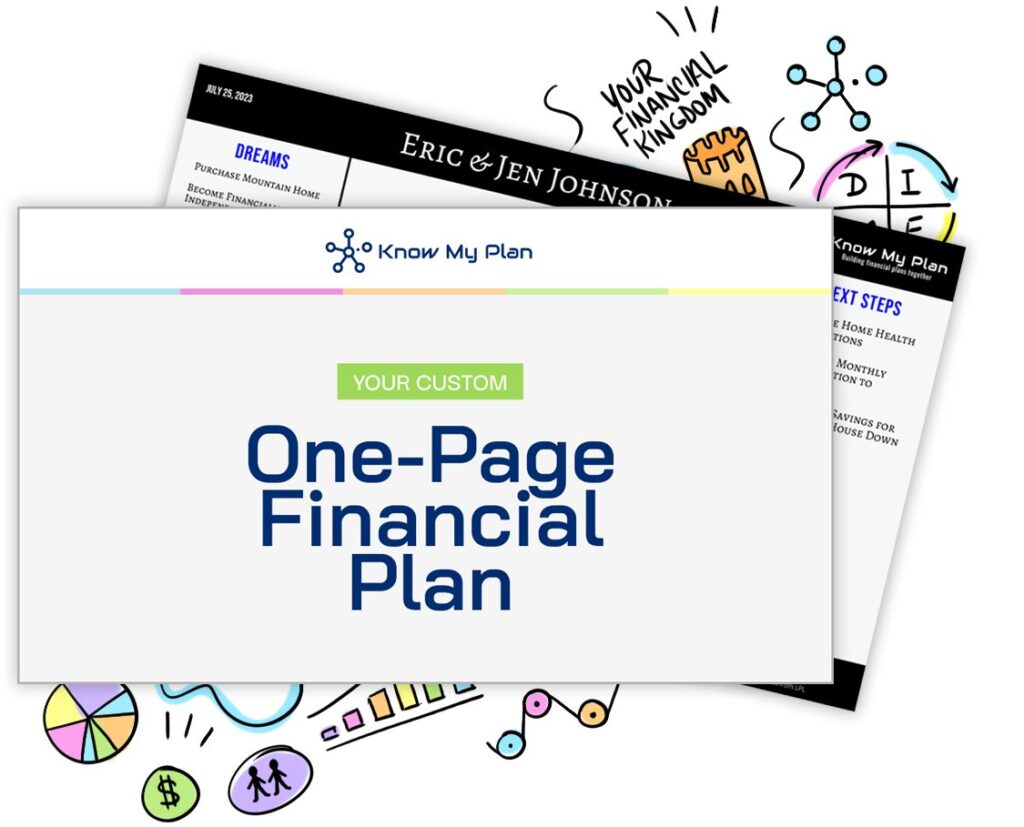
When it comes to financial planning, I believe that some things are simply non-negotiable. I might reference these as “hit by bus” theology. Meaning, if we leave this discussion today and you walk across the street and get hit by a bus, what are the things that have to be completed.
Morbid.
Yet, I believe it is important to start with preparing for the worst and planning for the best.
???? Estate Planning
A pillar of any good financial plan. Estate planning could include trust documents, will, medical directives, and a durable power of attorney. These documents can be drafted by a licensed attorney. In simple terms: what happens if I die, what happens if I am not able to make my own medical decisions, and what happens if I am not able to make my own financial decisions. These are not fun conversations to have with a spouse. If you aren’t sure where to start, there are some amazing resources online.
???? Disability Insurance
I continue to be amazed at how many people do not have an individual disability insurance policy. Often, I find that individuals will select a group plan at work (that might not be transferable). Let’s say you leave your current job and your new job doesn’t have disability insurance. Something happens, and now you can no longer qualify for disability insurance. I believe that your greatest asset is your ability to earn income (sometimes referred to as your human capital).
???? Life Insurance
Is anything more confusing to the consumer than life insurance? There are all these different names that get used (term, perm, whole life, universal life, variable universal life, 2nd to die, etc…). Here is the deal, they all have their place.
At the end of the day, most people want to know:
✅ What type do I need?
✅ How much coverage do I need?
Here is my back of the napkin math to calculate how much you need:
???? Add up your outstanding debt.
???? Add up any future liability (generally college costs). Let me further elaborate. How much do I need to invest in a lump sum to provide for 100% of my children’s future educational expenses?
???? If I have no debt, my spouse’s desired monthly income times 12 and divided by .04 or 4%. This assumes that if I had a diversified portfolio that I could take a 4% distribution rate. For example, If I had a $1,000,000 portfolio, I could withdrawal $40,000 per year (or 4%).
???? Add up the numbers from the first three steps, and then subtract any existing assets.
Let us walk through a hypothetical scenario and keep in mind your needs may be different based on your individual circumstances.
⭐ Alex & Jennifer have a $400,000 mortgage
⭐ If Alex passed away today, they would need a lump sum of $200,000 to fund their children’s future college expenses.
⭐ If Alex passed away today, Jennifer believes she could live on $5,000/month without any debt or setting money aside for their children’s educational expenses. The math ($5,000 x 12 months / .04) equals $1,500,000.
⭐ Alex has a life insurance need of $2,500,000. However, they have already saved $500,000. Therefore, Alex has a net life insurance need of $2,000,000.
This is a great way to start the process for determining how much life insurance coverage you need.
???? Long-Term Care Insurance
Once you reach age 50, you need to have a game plan for how you are going to pay for potential long-term care costs.
Long-term care costs currently can exceed $7,000 per month₁. Even if you are financially in a situation where you could self-insure, you should consider taking advantage of transferring at least a portion of that risk to an insurance company.
Conclusion
You would never try putting up the walls to a new house before pouring the foundation. Financial planning is no different. This may not be as exciting as figuring out the right mix of investments to own, but this is just as important.
₁ https://www.genworth.com/aging-and-you/finances/cost-of-care.html
This information discussed is for general educational purposes only. This information is not intended to be a substitute for individualized financial or legal advice. There is no assurance that the techniques and strategies discussed are suitable for all investors or will yield positive outcomes. The purchase of certain products or services may be required to effect some of the strategies. Please consult your legal advisor regarding your specific situation. Know My Plan, Independent Advisor Alliance and LPL Financial do not provide legal advice or services.



